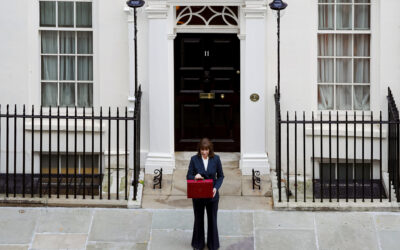A single large pharmaceutical company has received a £3.4 billion tax cut – including £486 million in 2024 alone – from a little-scrutinised tax incentive which is supposed to stimulate innovation and jobs in the UK, even though that company has cut UK jobs and shut down some UK manufacturing.
A new TaxWatch investigation has also found that HMRC has granted UK tax relief via the ‘Patent Box’ tax incentive for at least one patented drug that for several years was not available to NHS patients because the price asked by the pharmaceutical company was too high.
HMRC says that some 1,650 companies benefit from the Patent Box scheme, which allows qualifying companies to pay 10% corporation tax on profits from patented products, instead of the usual 25%. The scheme now costs the public purse over £2 billion a year in foregone tax revenues. Taxwatch has discovered that over half the tax break goes to just ten companies, and over a quarter to a single firm: the pharmaceutical multinational GlaxoSmithKline Plc (GSK).
Using unpublished figures obtained via Freedom of Information, and by analysing hundreds of company accounts filed at the UK company registry, TaxWatch has found that:
- Over half (56%) of the £2bn+ annual ‘Patent Box’ tax break goes to ten companies, and over two-fifths (41%) benefits just five companies, according to unpublished HMRC figures released to TaxWatch via Freedom of Information. The remainder is shared between over 1600 other companies.
- 27 percent of all Patent Box relief accorded across the UK economy since its introduction in 2013 – and in some years close to 40 percent — has gone to GlaxoSmithKline Plc (GSK Plc), which was one of the leading advocates for introducing the Patent Box in 2013.
- Since 2013, the Patent Box tax regime has reduced GSK Plc’s tax liabilities by £3.4 billion. This includes £486 million of tax relief in 2024 alone: an amount significantly larger than the entire 2024 budget of the Biotechnology & Biological Sciences Research Council, the UK government’s main bio-science innovation funder.
- The Patent Box is intended to encourage knowledge development, manufacturing and jobs within the UK. However, patents owned by GSK subsidiaries receiving Patent Box relief include products that were developed by companies in the USA and Switzerland, and are manufactured in other European and North American countries.
- GSK originally promised that once the Patent Box relief was introduced, it would invest £500 million in building a new factory in Ulverston, Cumbria. But GSK cancelled plans for this new factory in 2017, and in June 2025 GSK closed its existing factory in Ulverston too. Since it began to benefit from the Patent Box incentive, the number of people that GSK employs in the UK has fallen by around 25 percent.
- TaxWatch has calculated that the Patent Box tax relief received by GSK Plc in 2024 represents an annual subsidy of over £50,000 for each of the group’s full-time-equivalent UK jobs.
- Some of GSK’s tax relief has been awarded for an auto-immune drug whose intellectual property it shifted to the UK in 2012, but which GSK initially offered to the UK’s National Health Service in 2012 at such a high price that it was not available to NHS patients until 2016, when GSK finally agreed to lower the price.
There is no suggestion that any of the companies mentioned in TaxWatch’s report are attempting to avoid or evade the effects of UK tax law. They are taking lawful advantage of a highly permissive tax relief which predominantly benefits large, profitable companies; and does not require the claimants to exploit, market or manufacture the qualifying innovations in the UK. Unlike some other recipients, GSK Plc declares its benefits from innovation reliefs in the accounts of its UK subsidiaries.
When the Patent Box tax regime was being designed, Make UK, the lobby group for UK manufacturers and engineering, urged the Treasury not to introduce it, calling it “a costly and inefficient subsidy for a narrow set of companies”, which would benefit a “handful of large pharmaceutical and aerospace companies”, and provide “a distinct subsidy to patent-reliant industries at the expense of other industries without any significant economic rationale”.
A 2024 HMRC survey of large businesses found that Patent Box tax relief had not stimulated new innovation by the majority of firms that have benefited from the relief, and “had not impacted their overall business or investment decisions.”
TaxWatch’s full investigation report is here.



